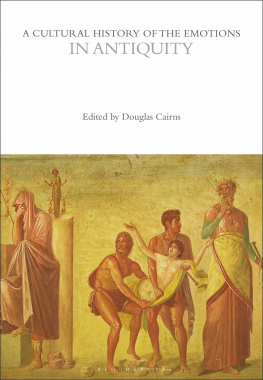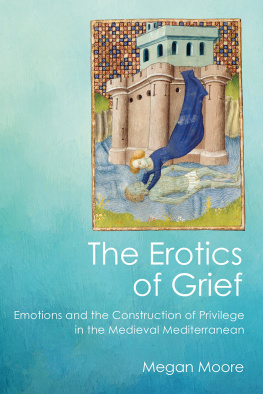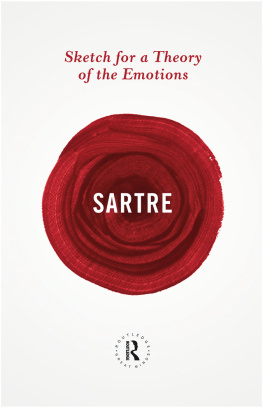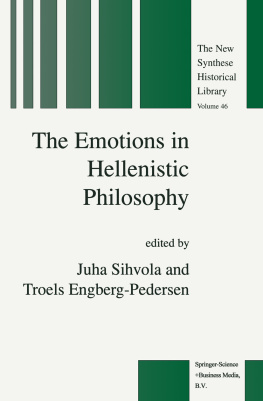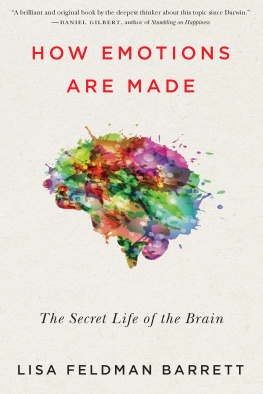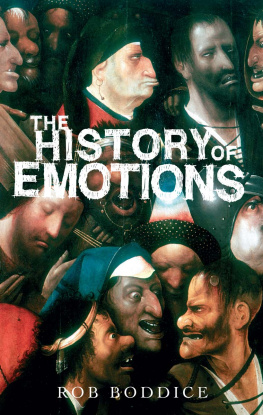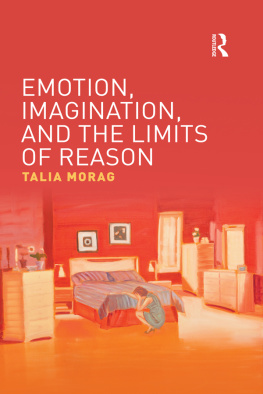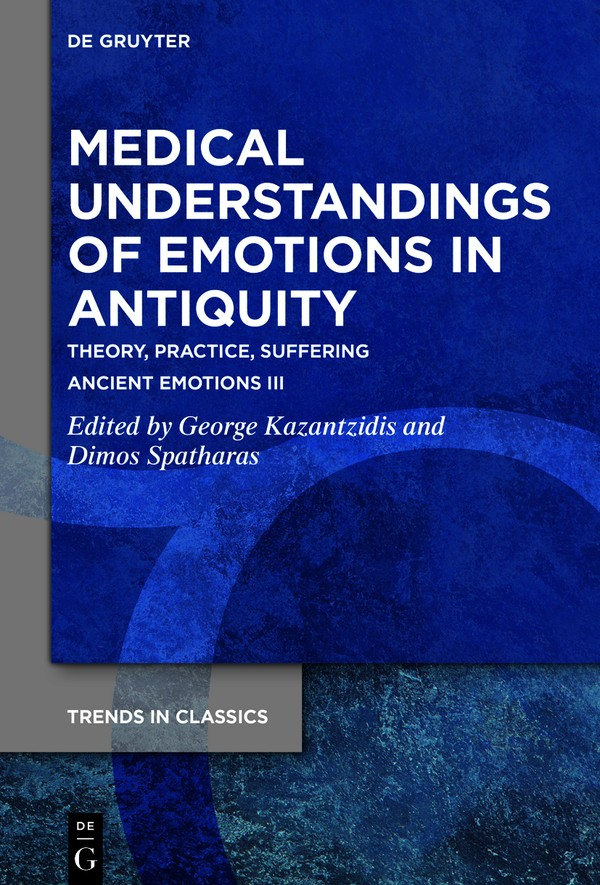Trends in Classics - Supplementary Volumes
Edited by
Franco Montanari
Antonios Rengakos
Volume
ISBN 9783110771893
e-ISBN (PDF) 9783110771930
e-ISBN (EPUB) 9783110772012
Bibliographic information published by the Deutsche Nationalbibliothek
The Deutsche Nationalbibliothek lists this publication in the Deutsche Nationalbibliografie; detailed bibliographic data are available on the Internet at http://dnb.dnb.de.
2022 Walter de Gruyter GmbH, Berlin/Boston
Medical Understandings of Emotions in Antiquity
Trends in Classics Supplementary Volumes

Edited by
Franco Montanari and Antonios Rengakos
Associate Editors
Stavros Frangoulidis Fausto Montana Lara Pagani
Serena Perrone Evina Sistakou Christos Tsagalis
Scientific Committee
Alberto Bernab Margarethe Billerbeck
Claude Calame Kathleen Coleman Jonas Grethlein
Philip R. Hardie Stephen J. Harrison Stephen Hinds
Richard Hunter Giuseppe Mastromarco
Gregory Nagy Theodore D. Papanghelis
Giusto Picone Alessandro Schiesaro
Tim Whitmarsh Bernhard Zimmermann
Volume 131
Medical Understandings of Emotions in Antiquity

Theory, Practice, Suffering
Ancient Emotions III
Edited by
George Kazantzidis and Dimos Spatharas

Ancient Emotions, edited by George Kazantzidis and Dimos Spatharas within the series Trends in Classics Supplementary Volumes, investigates the history of emotions in classical antiquity, providing a home for interdisciplinary approaches to ancient emotions and exploring the inter-faces between emotions and significant aspects of ancient literature and culture.
ISBN 978-3-11-077189-3
e-ISBN (PDF) 978-3-11-077193-0
e-ISBN (EPUB) 978-3-11-077201-2
ISSN 1868-4785
Library of Congress Control Number: 2022932967
Bibliographic information published by the Deutsche Nationalbibliothek
The Deutsche Nationalbibliothek lists this publication in the Deutsche Nationalbibliografie; detailed bibliographic data are available on the Internet at http://dnb.dnb.de.
2022 Walter de Gruyter GmbH, Berlin/Boston
Editorial Office: Alessia Ferreccio and Katerina Zianna
Logo: Christopher Schneider, Laufen
Printing and binding: CPI books GmbH, Leck
www.degruyter.com

For M. and M.
G.K
For my father
D.S.
Preface
This volume arose from the 2017 Crete/Patras Ancient Emotions II Conference on Medical Understandings of Emotions which took place at the University of Patras. The event and the present volume, including thoroughly revised versions of the papers read at Patras, address an under-explored topic, i.e. medical conceptualizations of ancient emotions. In view of emotions predominance in modern medical practice health psychology is a sub-field of clinical psychology and the epidemic of mental diseases, such as depression and anxiety disorders, in Western societies, the topic of this volume is pertinent to modern concerns about health in the societies we live in. Equally importantly, our desire to explore medical conceptualizations of emotions was prompted by our curiosity about the possible similarities or differences between ancient and modern medical discourses, the definition of pathological emotions, and the ways in which ancient patients experienced and expressed sentiments caused by suffering and pain. The editors of this volume hope that contributors discussion of emotions in the doctors will enhance our understanding of the ways in which ancient cultures construed the category emotion and that it will shed fresh light on issues which are pivotal to the study of ancient emotions, such as the implications of the mind/body dichotomy, the possible interfaces between professional and folk understandings of sentiments or the relationship between ancient medicine and philosophy.
During the volumes production, which partly coincided with the COVID-19 pandemic, we have accrued several debts. We are grateful to the volumes contributors for their collegial spirit and their patience. We also want to extend our thanks to the Departments of Philology of the Universities of Crete and Patras for their support. Last but not least, we want to thank warmly the general editors of the Trends in Classics series, Professors Montanari and Rengakos, for making this volume and the sub-series Ancient Emotions possible.
G.K.
D.S.
Introduction
George Kazantzidis
Dimos Spatharas
Preliminaries
Our project on medical understandings of emotions was conceived and partly executed before the COVID-19 pandemic. Hence, none of our contributors employs this distressing global experience as comparative ground for his or her arguments. The fact that the papers included in this volume were produced before the threatening emergence of the pandemic is felicitous. For one thing, all those who were involved in this project may now feel the urge to revisit their conclusions on the basis of their experience of medical history in the making. Readers may also be tempted to compare ancient scripts of patients emotions with the emotions caused by the pandemic. With the outburst of COVID-19, globalization took on a new meaning, insofar as secluded citizens across the world became possible transmitters and patients of the new virus. Our 2017 COVID-19-free curiosity about the under-explored issue of how ancient medical authors treated or pathologized emotions and how they depicted their patients emotionally charged sufferings or hopes morphed into a living experience with significant affective aspects.
Fear, anxiety, panic, hope, distress, sorrow, grief, anger, and gratitude (to mention some emotions) have been and still are pivotal to both professionals and non-professionals discourse about the pandemic since 2020. During the pandemic, health professionals, often underpaid, were elevated to the status of resilient heroes in a battle with an invisible enemy battle metaphors are indeed very common in medical language (e.g. people beat cancer, a disease sometimes qualified as aggressive). Self-centered Galen or other ancient doctors would no doubt have relished with pride the spectacle of thousands of citizens applauding doctors and nurses from their balconies. The rise of conspiracy theories or the emergence of irrational responses (it is reported that Boris Johnson wanted to be injected with the virus on live TV, but later contracted COVID-19 in the usual way and was, thus, urgently sent to the hospital) would perhaps make Thucydides, a pioneer in medical psychology, give us a knowing wink.
Thinking about Medical Understandings of Emotions



